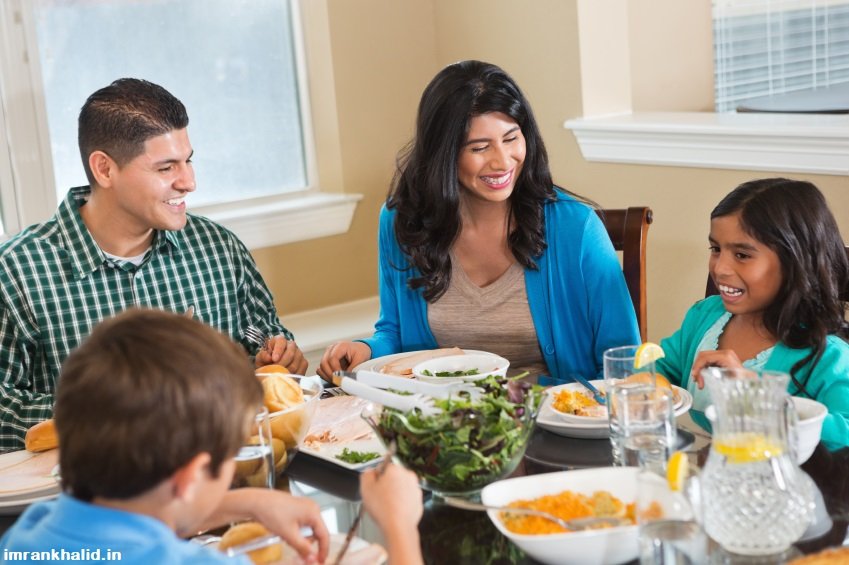It is said that ‘the family that prays together stays together’, but we can add ‘eating together’ is another way to build up and improve family bonds. As well as inviting neighbours, friends and relatives during mealtime has a surprising power. It does not matter what meal you are having! It could be simple fish, vegetables and other food item but it is the simple act of sitting at the same table and eating rice or tea together.

Sharing is caring
The pleasures of sharing during eating are unparalleled. The sharing of food with neighbours, relatives, friends, the needy, and the destitute is also emphasised in religions. Eating with others bring about harmony and understanding among people. People are usually more relaxed when eating in company. Their minds are less absorbed in their daily activities and are free of worries. However, theses gatherings are not only a time for strengthening relationships and keeping track of family members or relatives, they can truly lead to better physical and mental health for all family members.

Benefits of eating together
There are health benefits of eating together. During that time we usually eat slowly. Eating slowly is recommended for health. This reduces the consumption of food. This also helps in chewing the food well. Slow eating effects in the exercise of the jaws and mixing of the saliva with food. Hence, efficient digestion takes place because the food particles are cut into smaller pieces, not requiring as much mixing in the stomach or intestine.

According to a University of Minnesota study, frequent family meals are related to better nutritional intake, and a decreased risk for unhealthy weight control practices and substance abuse. A Harvard study showed that eating family dinners together most or all days of the week was associated with eating more healthfully. The study revealed that families eating meals together generally consumed higher amounts of important nutrients such as calcium, fiber, iron, vitamins (B6, B12, C and E) and consumed less overall fat, compared to families who never or only sometimes eat meals together.
According to a Lou Harris-Reader’s Digest national poll of high school seniors unveiled that children who frequently eat meals with their families tend to do better in school.
Today’s problems
In our childhood we were used to this culture. For generations it has been a basic human ritual, but today the scenario is different. Everyday family lunch is no longer a practice. Sometimes parents pressured by more than one career are on the run. And ultimately families do not dine at a common table. In fact, eating together is not just eating a meal. It is important because it gives children reliable access to their parents. This highlights the significance of the neighbours, friends and relatives. It reminds the child that they are part of it. And a child’s belongingness in its family contributes to his spirit and stability. It has been noticed that good table manners are missing nowadays from some of our children. But good manners are essential to success.
What Researchers says
According to researchers, there is an ongoing learning process at the family dinner table. Taking time to prepare and serve an appetising meal at home can help children eat healthy food with lower fat, lower sodium and higher nutritional values. Thus, we can escape from unhealthy fast food. Having the family together for at least one mealtime each day gives parents and teens a chance to attach. It is a good time to check in with each other. But remember, do not shout and fight during eating — keep the mood light, relaxed and try not to instruct or criticise.
- Why do students have less interest in doing Engineering nowadays? - July 3, 2019
- What to do after B.Tech | Various other Career options after Engineering - May 24, 2019
- Should I stop being a nice guy? - May 6, 2019


Leave a Reply